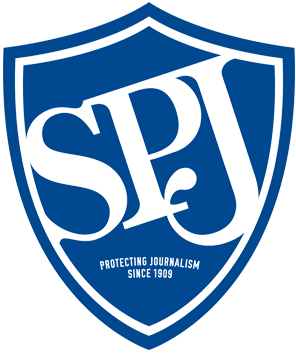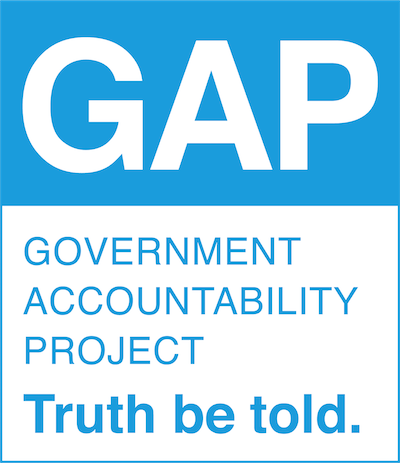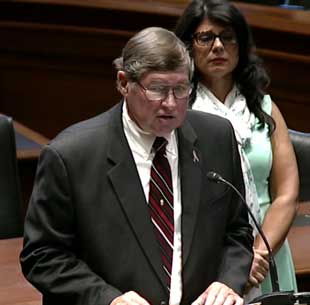The Whistleblower Project


– Introduction
– A Call to Action: Whistleblower Protection Legislation
If passed, these laws would help improve protection for whistleblowers.
Whistleblower Basics
– The Law and Whistleblowing
Deciphering the laws dealing with whistleblowing is complicated, but we hope this will help.
– Whistleblowers and Retaliation
Those who expose wrongdoing can face job loss, lawsuits or even prison.
– Leaking vs. Whistleblowing
Can you spot the difference between a leaker and a whistleblower? It may be trickier than you think.
– Nine Organizations That Work With and Help Whistleblowers
Best Practices for Journalists
– Source Protection and Anonymity for Whistleblowers
In political journalism, there’s a debate over allowing sources to talk to you off the record, in order to keep the access pipeline flowing. Anonymity and the ethics of it can also be complicated in situations beyond scoring political points.
– Whistleblowers and Reporters: Trust
Here are some best practices to follow when working with a whistleblower on a story.
– Technology Can Help Whistleblowers Communicate Anonymously
The ways that reporters and whistleblowers communicate is evolving. The introduction of secure communications has become necessary as journalists try to protect their sources, all the while trying to guarantee the information is secure.
– Anonymity: Not Always the Possible, Nor Always the Best, Strategy
Many whistleblowers want to disclose information about trouble in their workplaces while maintaining their anonymity. However, the vast majority of whistleblowers — more than 95 percent — try to solve their problems internally first.
– When Working with Whistleblowers, Same Ethical Journalism Principles Apply
Government Accountability Project’s “Working with Whistleblowers: A Guide for Journalists” details best practices for working with whistleblowers.
Voices
– Kathryn Foxhall: Good whistleblowing simply needs free speech
During the last 25 years it’s become an accepted norm for government, business, nonprofits and other organizations to prohibit employees to ever communicate with journalists without notifying and being overseen by the authorities, often public information officers. The restrictions are intense, highly effective censorship. The Society of Professional Journalists has made opposing them a priority.
– Jesselyn Radack: Challenges in Defending National Security Whistleblowers
War crimes, mass surveillance, torture: some of the biggest stories in modern history relied on whistleblowers in national security and intelligence agencies. They came forward at great risk to expose the truth.
– Nick Schwellenbach: The Modern Politics of American Whistleblowing
Insiders Valued More Highly in U.S. Society, But Still Face Perils.
 The Hanford Nuclear site famously refined the plutonium used in “Fat Man,” the nuclear weapon dropped on Nagasaki, and over the next 30 years produced thousands of tons of nuclear waste. Walt Tamosaitis was deputy chief process engineer and research & technology manager for Hanford’s Waste Treatment Plant, a facility built to process, for safe storage, a majority of the 56 million gallons of radioactive waste contained in aging tanks.
Get the full details of Walt's story, along with 24 other times whistleblowers changed history.
The Hanford Nuclear site famously refined the plutonium used in “Fat Man,” the nuclear weapon dropped on Nagasaki, and over the next 30 years produced thousands of tons of nuclear waste. Walt Tamosaitis was deputy chief process engineer and research & technology manager for Hanford’s Waste Treatment Plant, a facility built to process, for safe storage, a majority of the 56 million gallons of radioactive waste contained in aging tanks.
Get the full details of Walt's story, along with 24 other times whistleblowers changed history.
Features
– Mary Willingham: An Attempt To Make The College Athletic System Better For Athletes
Mary Willingham talks about why she spoke out about the treatment of college athletes at North Carolina and why — despite death threats from college sports enthusiasts — she would do it again.
– Megan Wood: Reporting with Purpose
Megan Wood talks about why she looked into San Diego Christian College’s missing $20 million in expenses and how whistleblowers make a difference in their communities.
– Richard Bowen: Blowing the Whistle on Defective Mortgages
While evaluating $90 billion of mortgages Citigroup was buying from Countrywide and other lenders, former Citigroup vice president Richard Bowen tried to warn company leaders and board members about the rise in defective mortgages. In 2010 he testified before the Financial Crisis Inquiry Commission. Here, in Bowen’s words, is what happened next.
– Craig Watts: Typical American Farmer Risks Career to Reveal Inhumane Conditions at Chicken Farms
Craig Watts was a typical American farmer with three kids, two dogs, and a barn full of chickens. That all changed though when he decided to show the public the conditions chickens, sold by Perdue farms, were being raised in.
Credits
Meet the Project Team
Anonymous whistleblowers can expose wrongdoing in government and help journalists to hold those in power to account. Your anonymous source might be the one thing that helps a story come together.
“Anonymous sources are sometimes the only key to unlocking that big story, throwing back the curtain on corruption, fulfilling the journalistic missions of watchdog on the government and informant to the citizens,” wrote Mike Farrell, a professor at the University of Kentucky’s School of Journalism and Media, in a position paper. “But sometimes, anonymous sources are the road to the ethical swamp.”
More than 95 percent of whistleblowers first attempt to solve their issues by raising concerns internally, through their agency’s channels and their management. They only seek outside sources, such as journalists, after their employer fails to address the problem or if they know their complaints will be met with reprisal or inaction.
Since whistleblowers often report problems internally first, or because the information is tied to their expertise or job responsibilities, fulfilling that promise of anonymity can be difficult.
“Few ethical issues in journalism are more entangled with the law than the use of anonymous sources,” Farrell, also a member of SPJ’s Freedom of Information Committee, wrote. “Keep your promise not to identify a source of information and it’s possible to find yourself facing a grand jury, a judge and a jail cell. On the other hand, break your promise of confidentiality to that source and it’s just possible you might find yourself on the receiving end of a lawsuit.”
You may also find yourself blacklisted by whistleblowers if you abandon them.
Many anonymous sources go to the media as a last resort, after they have exhausted internal protocol. They do so knowing the risks involved and that penalties are possible beyond those in the workplace.
Honesty is the best policy — and is a policy the SPJ Code of Ethics endorses, especially when it comes to working with, and using, sources.
“Identify sources clearly,” the Code reads. “The public is entitled to as much information as possible to judge the reliability and motivations of sources.”
This policy benefits the news consumers as they are learning about the events of the day.
If an anonymous source is used, journalists need to explain why, but also consider if the source needs anonymity.
“Consider sources’ motives before promising anonymity,” the Code reads. “Reserve anonymity for sources who may face danger, retribution or other harm, and have information that cannot be obtained elsewhere. Explain why anonymity was granted.”
NPR’s ethics guide adds that journalists should push for a detailed description of who they are and their motivations, to use in reporting.
Additionally, if a journalist says the source will stay anonymous, that agreement must be honored. Honesty remains the best policy with the anonymous source.
The Government Accountability Project (GAP) says confidentiality needs to be clear from the word “go.”
GAP also notes that a journalist should consult a lawyer if the information is intended for public use. NPR’s ethics guide encourages its reporters to consult with their supervisors and legal team to make sure the promises can be kept, since the legal protections are not always secure.
If a journalist ends up in front of a grand jury, or in a jail cell, the source needs to be sure that the journalist will protect their identity, or else absolute anonymity should not be promised.
An honest approach not only benefits the journalist and the whistleblower, but ultimately it benefits the public — the true beneficiaries of the research and work done by both journalists and whistleblowers — in order to be informed about the world around them and the impact the news has on their daily lives.
Editor’s note: In addition to his work on the Freedom of Information Committee, Alex Veeneman is a member of SPJ’s Ethics Committee.